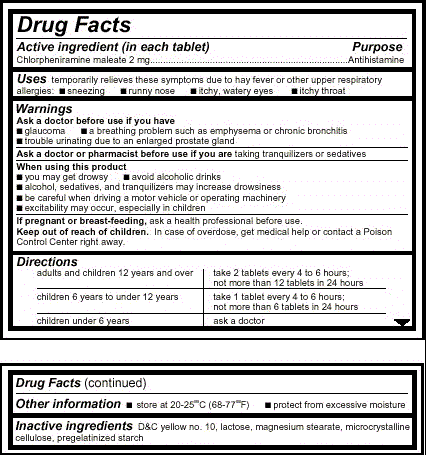Not Rethinking Digital Copyright: Ruling Ends ASCAP's Magical Thinking
Posted by Kristen Cichocki at April 30, 2007 07:28 PM
Not Rethinking Digital Copyright: Ruling Ends ASCAP's Magical Thinking
On April 25th, the U.S. District Court for the Southern District of New York ruled against the American Society of Composers, Authors and Publishers (ASCAP) holding that downloads of music over the internet did not constitute a public performance under copyright law.
Performance rights societies, such as ASCAP, license and collect royalties for the public performances of their member’s works. Traditionally this has meant all performances of a work on radio, TV, cable, in bars, clubs, malls, airlines, websites, etc; in short, public places where the work was played and somebody heard it. ASCAP also collects performance fees on all digital streams, which are not unlike radio broadcasts.
On
Under Sec. 101 of the Copyright Act, “to perform” means to recite, render, play, dance, or act it, either directly or by means of any device or process. To perform a work “publicly” means 1) to perform at a place open to the public where a substantial number of persons gather or 2) to transmit the work to a place open to the public or by device or process in a way the public is capable of receiving it (think radio).
I don’t know about you, but when I download something I’m usually by myself (in the law library). And what I get from iTunes is not a ‘performance’, but a copy of a musical work for which I’ve paid. Not dissimilar to what I get when I go to my local music store and buy a copy of the latest Modest Mouse CD.
The court obviously agrees. In his opinion, U.S. District Judge Connor noted that the language of the statute was clear, “in order for a song to be performed, it must be transmitted in a manner designed for contemporaneous perception.” The court then aptly pointed out that the downloading of a file was more accurately characterized as the reproduction of a music file, i.e. a copy. As the court points out, this is consistent with the holdings in the peer-to-peer file sharing cases which found that the downloading of copyrighted music files violated the plaintiff’s reproduction rights.
The court thus declined to rethink downloads and maintained, contrary to ASCAP’s creative imagining, that downloads are nothing like radio broadcasts or digital streams. A download is simply the transfer of a file from one location (the iTunes server) to another (my laptop). Like the sale of a CD, the one who transfers the file pays what is known as a mechanical license fee to do so. In the digital realm it’s called a digital phonorecord delivery (DPD) license.
Unfortunately for ASCAP, mechanical license fees are paid to the Harry Fox Agency.
Read the full opinion here
Rethinking the law treatise - Patry leads a revolution
Posted by J Matthew Buchanan at January 16, 2007 11:00 AM
Bill Patry, Senior Copyright Counsel at Google and former Copyright Counsel to the U.S. House of Representatives, has done some major rethinking. And by major, I mean, um....major.
Bill just completed a massive, seven year solo effort to craft the ultimate treatise on copyright law. He sent me an e-mail last week announcing the availability of the treatise, and described it as "close to 6,000 pages" in "single space, printed form."
Six thousand pages? Solo effort?  Yep...just ask Bill: "I did 100% of the research and writing, never using assistants of any kind. " Holy cats.
Yep...just ask Bill: "I did 100% of the research and writing, never using assistants of any kind. " Holy cats.
Surely Patry on Copyright will prove valuable simply because of its extensive treatment of all things copyright. But the actual printed treatise is just the beginning. You see, Bill didn't just sit down for the last seven years and dutifully document current copyright law. Nope...he didn't stop with that conventional thinking. He took it a bit farther and did a bit of rethinking.
And the copyright world stands to benefit tremendously from his effort.
How so? Consider this: Bill's working to back the treatise with a few web resources that, I think, will prove to be the real value in the deal. First, he's launching the Patry Treatise Blog (uh oh, he's got the bug!) that promises to make the treatise interactive. The idea here, according to Bill, is to break out of the one-way nature of the traditional treatise and open the work up to the community....really turn it into a living, breathing document that reflects multiple viewpoints and sources on various points of law. So, go ahead, tell Bill about the typo you found...or, better yet, tell him about "things you think should have been discussed but weren’t, or were discussed in far too brief or dismissive a way."
Books backed by websites aren't new, of course. But the idea of a treatise backed by an interactive community resource? That's some major rethinking that, I think, could prove quite powerful.
Bill doesn't expect to stop there, though. He's also hopeful that a website containing the complete legislative history of the 1976 Act can be launched and integrated into the treatise and blog. Can you imagine the interactive community plugged into a web-based, easily-navigated version of the legislative history behind the major copyright act? Now that's powerful.
Keep an eye on this project. I think Bill's onto something big.
Patry on Copyright is available from Thomson/West. If you're in the market for a comprehensive copyright work, Bill's treatise - thanks to his rethinking - promises to deliver the most bang for the buck.
Digital downloads are bad for recording artists?
Posted by Stephen M. Nipper at June 15, 2006 01:40 AM
I've always wondered what the long term impact of letting people pay 99 cents for the songs they want (instead of buying a CD containing 2 songs they want and 10 they don't for $17.99) would do to the recording industry. Time will tell, I suppose.
Based on comments Weird Al Yankovic recently made, The Digital Music Weblog set out to compute the difference between what an artist receives per song on a CD vs a downloaded albumn. The results...31 cents per song via CD, and 4.5 cents per song downloaded. OUCH. Do read the DMW post...very interesting discussion of how recording artists are compensated.
Yet another reason not to buy proprietary digital downloads.
Rethinking Design and Fab(rication) Law
Posted by Stephen M. Nipper at March 6, 2006 07:05 PM
How many blogs do you need to have before someone does an intervention?
Rethink(IP) is proud to announce our latest collaborative blog, no not that one, but the "Shape Blog."
The Shape Blog is a collaborative effort between at least six IP bloggers: the TTABlog, the Trademark Blog, and Rethink(IP).
Rethink(IP) will be heading up the patent (design and utility) wing of a discussion of the intersection of 3D shapes and the law.
This topic is actually very important. As consumers are able to economically fabricate more and more items at home, IP owners that were previously immune to how consumer technology impacts their bottom line are going to have to pay attention. Think about it. If one could merely download a torrent of a part schematic from the Internet and "print" it on their personal fabrication machine (laser cutter, CNC, etc), why would they ever go buy replacement parts (or the original device in general)? Hmm...much gnashing of IP owner teeth ahead.
Here's the RSS feed: http://feeds.feedburner.com/ShapeBlog
Public domain music via "donum mundus" clauses
Posted by Stephen M. Nipper at February 9, 2006 09:21 PM

What an “amusing” concept…reserving the right to donate to the public domain.
I’m not sure I’ve ever seen this before. My surfing the other night brought me across the blog of a musical artist (Chris Rice). [Disclaimer: I'm a fan of his.]
In one post, Chris talks about how in negotiating his latest record deal he demanded that a “donum mundus” clause (“gift to the world”) be put into his recording contract. The clause allows him to, outside of his exclusive contract with his recording label, create works which he can donate to the public domain. Why? Because according to Chris, “[s]omehow in the [illegal file sharing/copyright] debate, we have forgotten that music exists primarily to beautify the world, and that, although important, earning a living from it is secondary.”
I’m not sure which is more amazing. The idea (reserving the right to donate his talents), or the fact that his recording label agreed to let him do it. Personally, I would foresee that the record label would want to sign off of what songs are kept and which are donated…but that isn’t what happened here.
It will be interesting to see if Chris’ idea catches on…I’ll be keeping an eye on his blog, interested in seeing what the clause actually looks like.
Rethinking Copyright Terms
Posted by Stephen M. Nipper at September 8, 2005 11:08 PM
I realize that I am just a lowly patent attorney, but I have a copyright question I don't know the answer to. It's a doozie. It is such a doozie that I'm already cringing from the backlash and grief this post is going to cause me.
Patents are clearly a bargain. You tell the world "how" you did it (so we can learn from your great knowledge and invent our own improvements) and we'll give you a limited (in time) monopoly. Without this "trade," you'd keep it as a trade secret and society would never benefit from the knowledge. THAT I get. It makes perfectly good sense to me.
Copyrights...I don't get. Where's the bargain? Why again do we have copyright terms? I'm serious...I can't figure it out. I'm all for rewarding "authors" for their creations. I don't have a problem with copyrights themselves...what I am saying is (this is the doozie part), why do we need to have copyrights NOT be perpetual (renewable)? Is it so 70 years, 80 years, 90 years, or whatever time frame Congress creates in the future, someone will be able to sell $1.00 DVDs of crusty old films that no one wants to watch at Wal-Mart?
Oh, I'm sure this will drive certain people absolutely nuts. I'm not saying this to push your buttons...I seriously don't get it. Explain it to me...(comments and trackbacks are open).
[Note: This rant brought to you by my reaction to
this debate.]
Read the label
A few years ago the FDA pushed for the use of a standardized over the counter medication label in order to help consumers better understand the drugs they were using (or at least purchasing over the counter).

Not to be outdone, the EFF recently compiled their own standard...a list of the DRM (digital rights management) and other restrictions that the various online music stores (iTunes, Napster, Microsoft, Real) use. An example of such a restriction (embedded within the music file itself) is the number of different computers you can play the music file on (unlike a CD which you could use anywhere you want).
Maybe next time you purchase music online...you should first read the label.



 J. Matthew Buchanan
J. Matthew Buchanan  Stephen M. Nipper
Stephen M. Nipper  Douglas Sorocco
Douglas Sorocco 